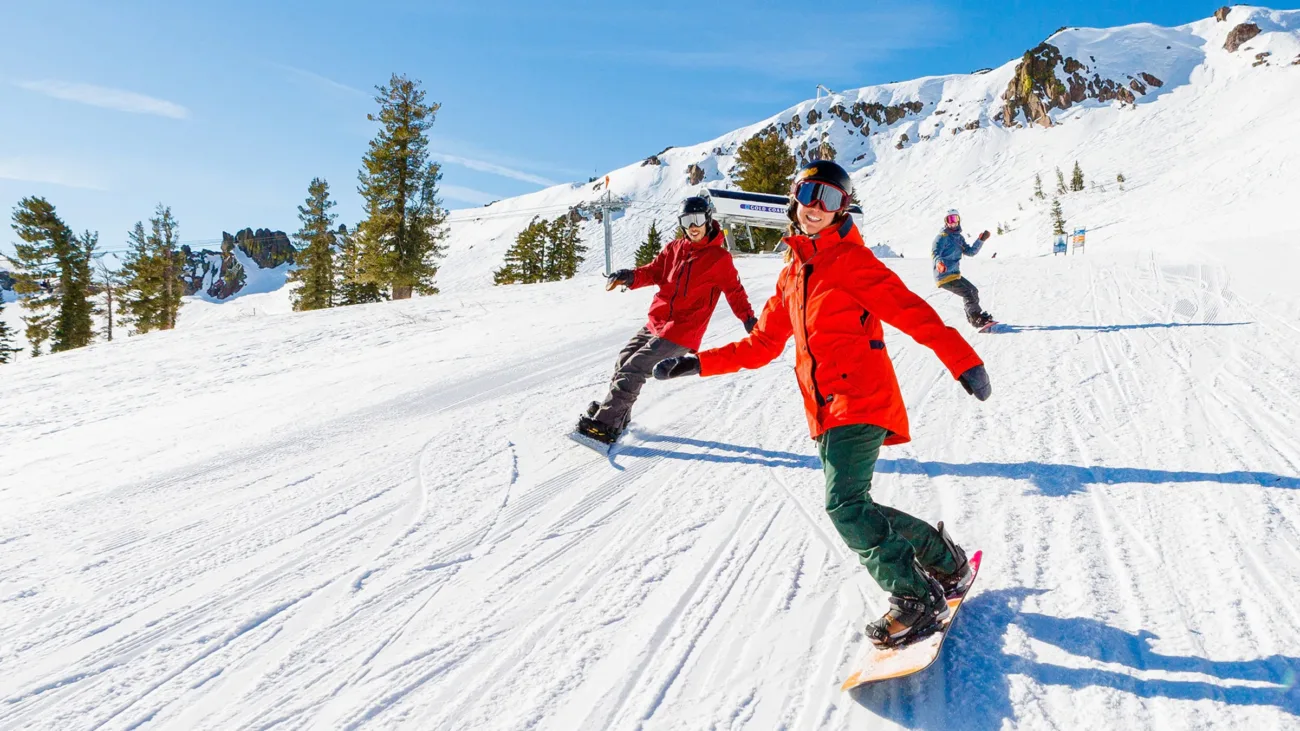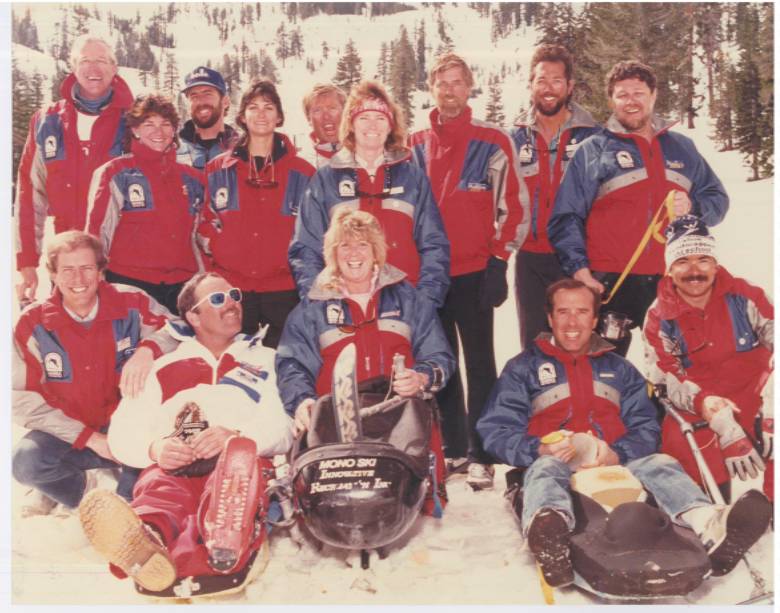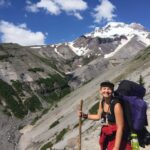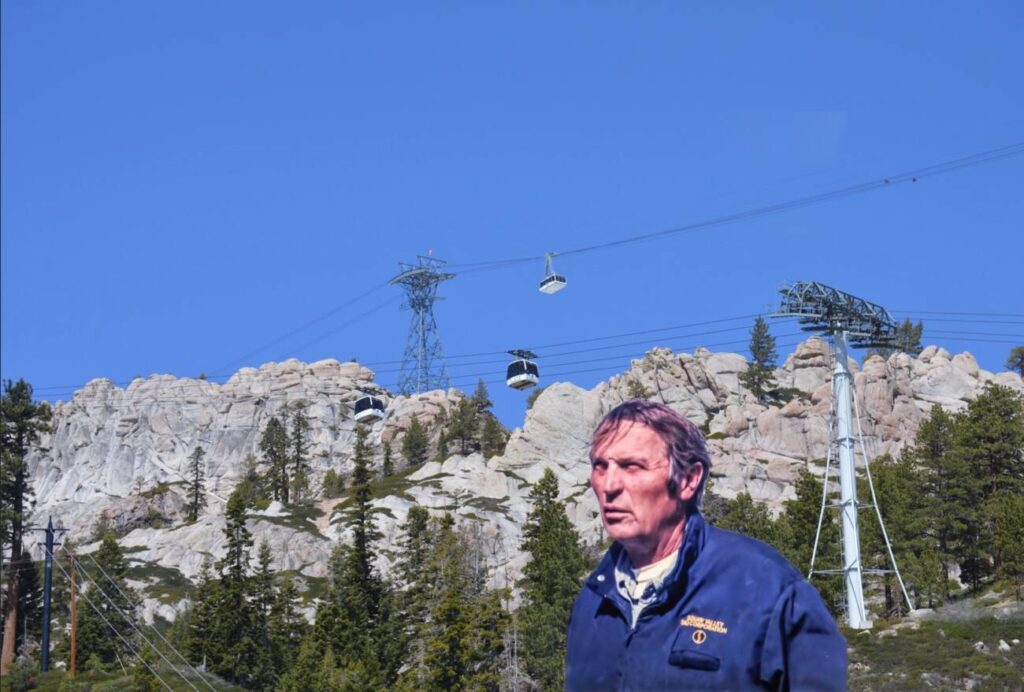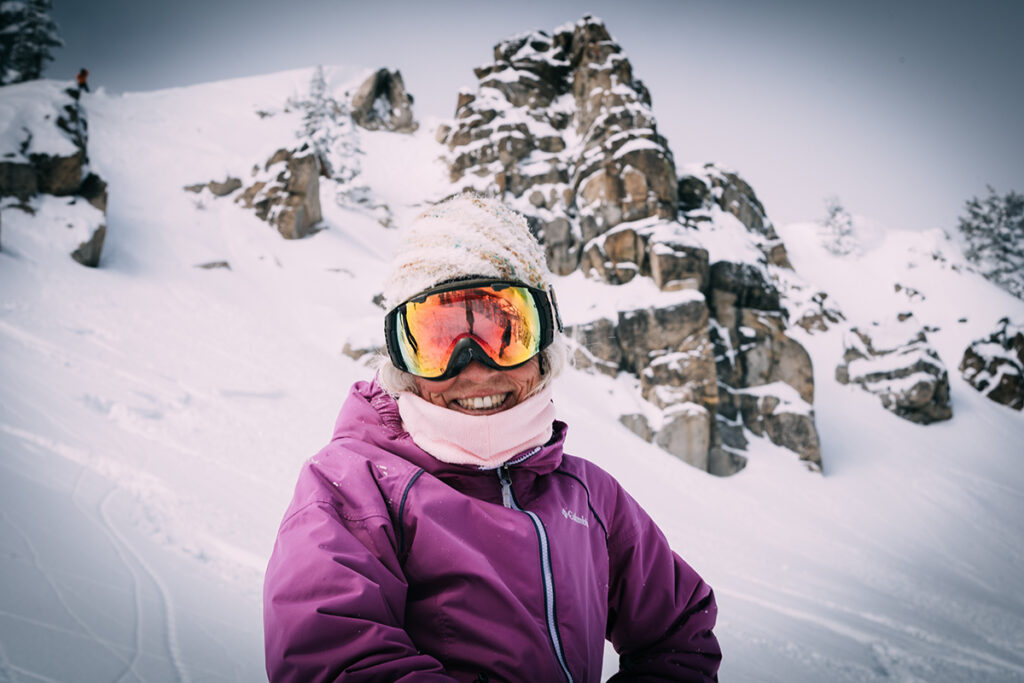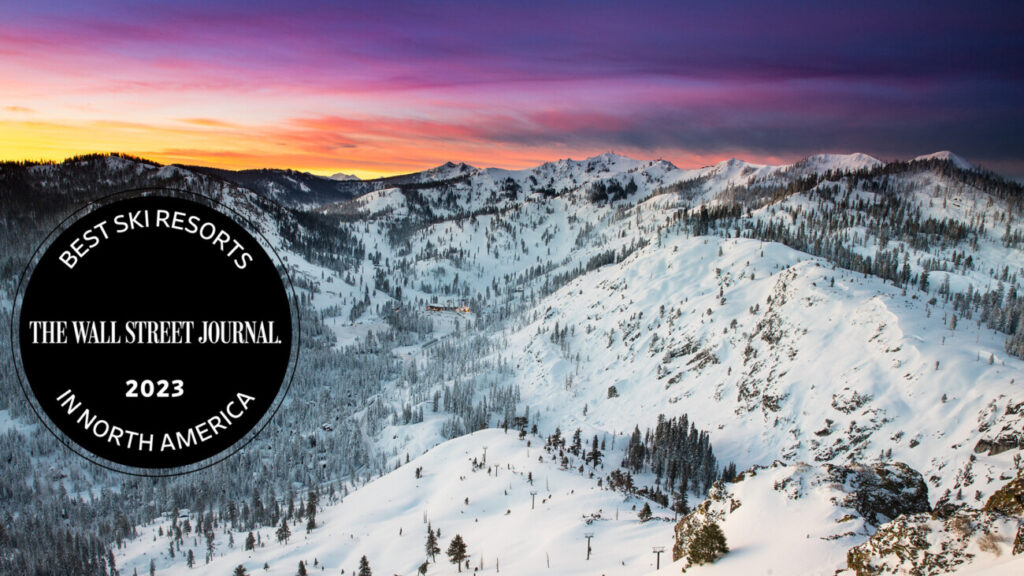Please note that we have done our best to use inclusive language and the following story has been published with approval from Achieve Tahoe.
It’s a Saturday morning in the Subway parking lot at the Alpine Lodge base area. The lot teems with SUVs, trucks, and tricked-out adventure vans, the owners of these vehicles booting up for a day out on the mountain. Also in this lot are twenty handicapped parking spaces, and they’re all full. Why? At the base of the Subway chairlift sits the Achieve Tahoe building, a space that has offered an inclusive, safe and loving learning environment for people with disabilities to learn to ski since it was constructed in the early 90s. This building was the first of its kind in the United States: fully accessible with wide doorways, an elevator, and direct access to snow and a chairlift. It was created specifically for adaptive athletes.

“This building has the best access in the country,” Katherine Hayes Rodriguez tells me. She would know. She’s spent more than 40 years working for Achieve Tahoe in every capacity imaginable, including going to ski mountains all across the country (and even a few in other countries) to train ski instructors on how to teach adaptive lessons.
On the day I’m visiting Achieve Tahoe, staff are teaching four different types of lessons: two people in wheelchairs, five blind people, three people with autism, and one individual with a head injury. There is also a group from Butte County with cerebral palsy whose organization has been coming since 1988. Students arrive from all over, and from all walks of life. There are ten-year-olds with cognitive disabilities just as there are veterans with physical ones. Many come back year-over-year, and some even multiple times a year. The community here is a tapestry of trust, non-judgment, and unfettered belief in one another.

Over 200 people volunteer as instructors with Achieve Tahoe each season, Katherine included. Early season training is conducted, and Level I or II PSIA Ski Certifications are encouraged, with the goal of having every instructor be able to teach to any disability. This is no easy feat, of course, and it is not always a realistic expectation. While interviewing Katherine, I ask her if she feels she has a strength in teaching one disability over the others. She admits to me that her strength is that she can teach all of them. While there is no ego in her response, there is a deserved sense of pride. Katherine’s work is the work of love, a love that has spilled over into the Tahoe community for decades.
***
Katherine happened upon a disabled ski lesson by chance in the winter of 1976. She was living in Tahoe City at the time, skiing at Alpine Meadows and waitressing at Starz Café. One day, Katherine’s friend told her that he’d heard there were blind skiers over at Ski Incline.
“No way!” Katherine had said. She eagerly went with him to check it out. At Ski Incline, there was a group of twenty five adaptive skiers visiting with the Reno Rehabilitation Center. The program manager, Bob Guerrero, saw Katherine and her friend watching, and he invited them to return the following week. They happily obliged. On a subsequent visit, Bob asked Katherine if she might be interested in actually teaching a lesson. After all, he was short-staffed and by that point, she’d watched a few.
Katherine’s first client was a woman in her mid-30s who was blind. Ten minutes in, Katherine says, “that was it.” She was absolutely hooked, and she knew she’d found her life’s calling. The dedication was immediate: Katherine deferred her acceptance to UC Berkeley (where she planned to study pre med) so that she could spend more time up in Lake Tahoe teaching. Eventually, once she started college, she stacked all her classes into a single day. Each week, she’d get up at 4am and drive back to the Bay Area, attend the classes, and then return to Tahoe. Six years in, she finally got her Bachelor’s degree in Therapeutics.


I wanted to know Katherine’s why. Why was she hooked? What was the thing that made her so sure that she’d found her career path? We briefly discussed some of the more obvious reasons: it helped people, it was the right thing to do, it increased inclusion. But then we got to the crux. “Disabled people may have limited mobility and every day movement is difficult,” she said to me. “Once they get onto the hill… It is a sport like no other for adaptive people. Skiing is a beautiful sport. It just provides the movement that they may never have in their everyday lives. It was something that made me so thrilled that I could have a role in helping somebody have a better life.”
Katherine has taught non-adaptive lessons too, even teaching at Palisades Ski School (then Squ*w Valley Ski School) for six years. But she has always been drawn back to teaching adaptive, where she knows she can make the largest difference.
***
When Katherine first joined Achieve Tahoe (then known as National Handicap Sports & Recreation Association), she took a position as Ski School Director. She wasn’t just teaching in the Tahoe area, though. She was a pioneer in advocating for ski resorts nationwide to teach lessons for people with disabilities. Katherine wanted disabled athlete programs to be “desired, not required,” and she certainly did her part. In her five years with NHSRA National Clinic Team, she visited over 50 ski hills where she hosted multi-day clinics for the ski instructors and taught them the ropes of how to give an accessible ski lesson.

This was no small feat: They did not have the adaptive equipment that we have today, and there were times when staff were creating their own devices, doing things like bolting used walkers to pairs of skis. Still, the demand for ski lessons for people with disabilities continued to increase rapidly. In Katherine’s words, it was an “explosion.” By the mid-80s, she was even making trips to Korea
I wanted to know if she received a lot of pushback at first.
“Oh yes,” she told me. “We still get pushback.” But things have improved. “Even after the Americans with Disabilities Act passed, I had to convince ski resorts that hosting people with disabilities was actually a great thing for business. These people don’t come alone; They bring their whole families and their friends. They buy lunch. They buy lodging. They buy lift tickets. And on top of all of that, it is a great thing to do.”

Thankfully, the doors have always been open at Palisades Tahoe. Since 1967, when Achieve Tahoe was known as the National Amputee Skiers Association, the resort has partnered with Achieve Tahoe and given them affordable access to our mountains. Today, an adaptive season pass at Palisades is just $225 for adults and $75 for kids.
***
It was hard for Katherine to narrow down a single moment from over the years that sticks with her most, but I had to ask. She has touched thousands of lives. After a few moments of thought, though, Katherine told me about Marsha, who came to Achieve Tahoe in the mid-80s.
Marsha was a high double above-the-knee amputee who wore heavy, long wooden legs, and the ankles had very little flex. She had no quadriceps or hamstring muscles, and she was using a pair of stand-up outriggers (crutches with ski tips on the end). It was difficult for Marsha to load/unload the chairlift by herself. That was her goal, though. Marsha needed to learn how to load and unload herself because she wanted to join a Ski Club.
Over a couple of days, Katherine worked with Marsha to reach this goal. Ten times, twenty times, thirty times – They’d take the chairlift and Marsha would fall off. Katherine recalled lifting Marsha, pulling on those burdensome wooden legs to get her upright. But Marsha did it. She learned to get off the chairlift on her own and soon after, she was able to join the Ski Club.
A year later, Katherine received a letter from Marsha. She had a very different request for Katherine this time: She wanted Katherine to attend her wedding. In her time with the Ski Club, Marsha had met the love of her life and they were now engaged.
***
Truckee has been Katherine’s home base for many, many years now. She raised her two sons here with her husband in this tight-knit community and loves the sunny lake days, skiing, and mountain biking that the area has to offer. She’s been here for some hallmark moments, like the filming of Hot Dog (She was an extra and got paid $100 a day for 7 days, but wasn’t in the final cut. Darn!) and for the traumatic ones, too, like the 1982 avalanche at Alpine Meadows, where she lost a friend. She lived in the valley at that time, and she helped with the initial digging efforts.

But the area has been hospitable to the service that Katherine provides, and it has gotten even better over the years. In a place where competition abounds and crowds can stack up in anticipation of powder, Katherine has been pleasantly surprised by how understanding other skiers and riders are on the hill when they see Achieve Tahoe clients out and about. “In line, they aren’t chomping at the bit to get up the hill like you might expect,” she says of Palisades Tahoe guests. “Skiers are much more sympathetic in recent years than they used to be… They really take a step back and just wait.”



This especially tends to be the case when guests see students with physical disabilities, as these are more obvious to observers. For the students with cognitive, or less “visible” disabilities, sometimes there is still room for improvement when it comes to the on-hill etiquette of other skiers and riders. It might not be obvious right away that someone out there skiing with you has a disability. An Achieve Tahoe jacket or a “blind skier” sign might be a giveaway, but those aren’t guaranteed. You never know if someone around you might be deaf or have a brain injury.
“Look at me,” Katherine says. “I have Epilepsy. But would you ever know that just by seeing me? I look pretty normal, right? ”
***

On April 9th, Achieve Tahoe will be honoring Katherine Hayes Rodriguez at their annual gala for all of her contributions over the years. Tickets are still available, or you can also make a donation in lieu of attending. Two weeks after that, in Bozeman, Montana, PSIA/AASI (The Professional Ski and Snowboard Instructors of America) will be giving Katherine an award for Distinguished Service as well. (April 22) In the past, Katherine has also been inducted into the National Disabled Ski Hall of Fame and she has received accolades from the National Epilepsy Foundation for her leadership as well.
Katherine’s request for you? Remember that you share the mountain with folks who might not be as able-bodied as you, or who may be neuro-divergent in some way. She says, “If people can look in their heart and slow down and have a little bit of patience for somebody who may not have it quite as easy as them, life would go a lot smoother for adaptive skiers.” We all deserve equal access to these mountains that we call home.
WANT TO SUPPORT ACHIEVE TAHOE?
Consider bidding in their fundraising auction or donating to Acheive Tahoe directly. You can also find Volunteer Opportunities on their website.

